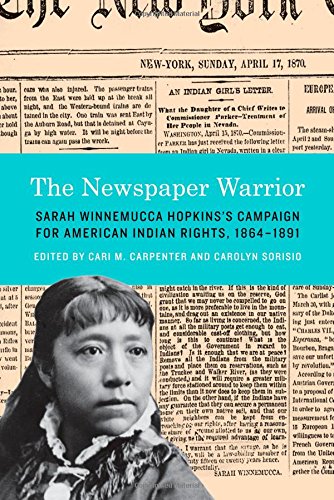

Most ebook files are in PDF format, so you can easily read them using various software such as Foxit Reader or directly on the Google Chrome browser.
Some ebook files are released by publishers in other formats such as .awz, .mobi, .epub, .fb2, etc. You may need to install specific software to read these formats on mobile/PC, such as Calibre.
Please read the tutorial at this link: https://ebookbell.com/faq
We offer FREE conversion to the popular formats you request; however, this may take some time. Therefore, right after payment, please email us, and we will try to provide the service as quickly as possible.
For some exceptional file formats or broken links (if any), please refrain from opening any disputes. Instead, email us first, and we will try to assist within a maximum of 6 hours.
EbookBell Team

4.7
46 reviewsSarah Winnemucca Hopkins (Northern Paiute) has long been recognized as an important nineteenth-century American Indian activist and writer. Yet her acclaimed performances and speaking tours across the United States, along with the copious newspaper articles that grew out of those tours, have been largely ignored and forgotten.
The Newspaper Warrior presents new material that enhances public memory as the first volume to collect hundreds of newspaper articles, letters to the editor, advertisements, book reviews, and editorial comments by and about Sarah Winnemucca Hopkins. This anthology gathers together her literary production for newspapers and magazines from her 1864 performances in San Francisco to her untimely death in 1891, focusing on the years 1879 to 1887, when Winnemucca Hopkins gave hundreds of lectures in the eastern and western United States; published her book, Life among the Piutes: Their Wrongs and Claims (1883); and established a bilingual school for Native American children.
Editors Cari M. Carpenter and Carolyn Sorisio masterfully assemble these exceptional and long-forgotten articles in a call for a deeper assessment and appreciation of Winnemucca Hopkins’s stature as a Native American author, while also raising important questions about the nature of Native American literature and authorship.